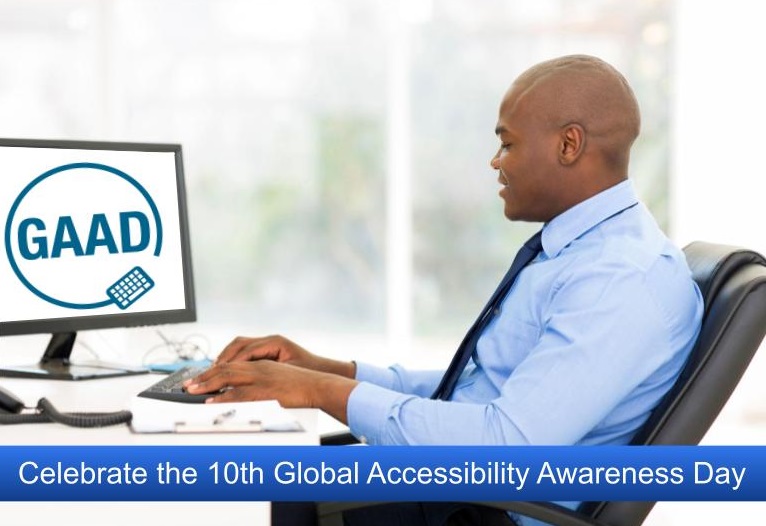
Accessibility is defined in the dictionary as “the quality of being easily reached, entered, or used by people who have a disability.” How does this apply to digital access? Through the years, digital content has become more prevalent in our lives with online banking and shopping, social media and messaging platforms used for connecting with friends and family, and newspapers and magazines moving away from printed forms and becoming digital. With this shift from physical to digital, content found online needs to be accessible for those with disabilities.
Global Accessibility Awareness Day brings attention to the need for digital access and inclusion for more than one billion people with disabilities or impairments. “Someone with a disability must be able to experience web-based services, content and other digital products with the same successful outcome as those without disabilities.”
What does digital accessibility mean for those who are blind or have a visual impairment? Digital accessibility would include websites navigable by keyboard instead of a mouse, alternative text image descriptions, easy-to-read high-contrast font, and audio descriptions or captioning for videos. Websites and digital content that include links, interactive buttons, headers, and drop-down menus need to confirm that these are compatible with screen reading software.
Business owners, digital content creators, web developers, and others need to take the time to ensure that their website and digital content is accessible for those with disabilities. If you are unsure if your content is accessible to all or know that it is not but do not know how to make it accessible, connect with an accessibility solutions provider.
May 20, 2021, marks the 10th Global Accessibility Awareness Day—help us shine the light on the need for digital accessibility!